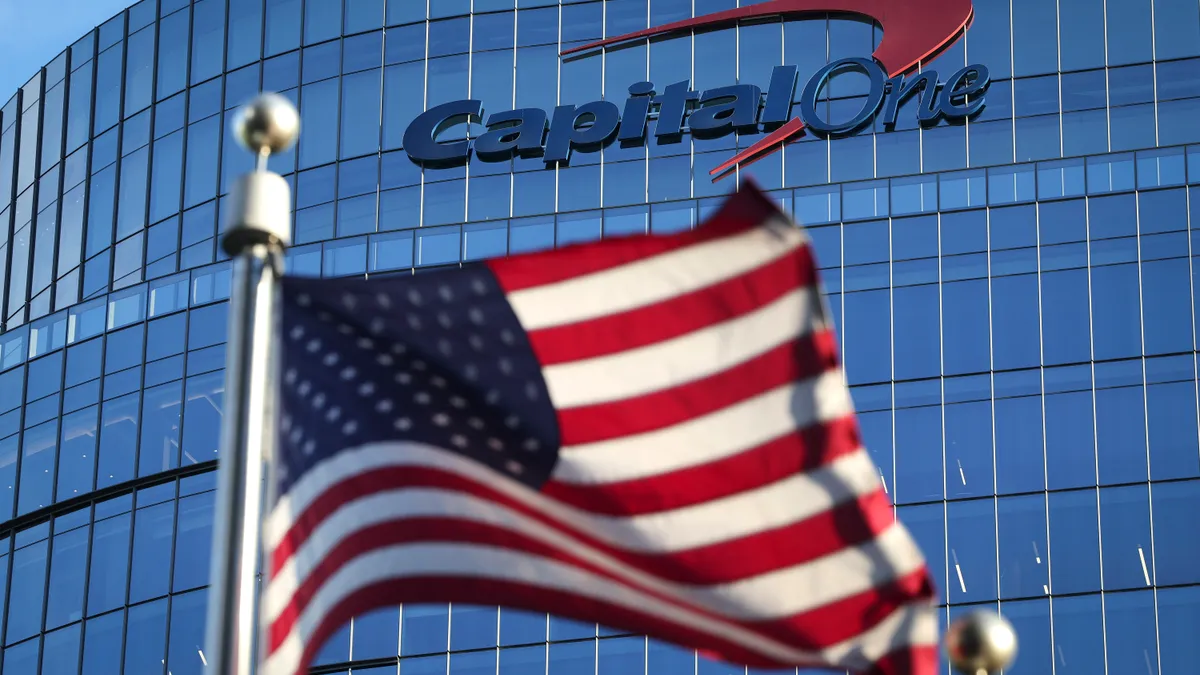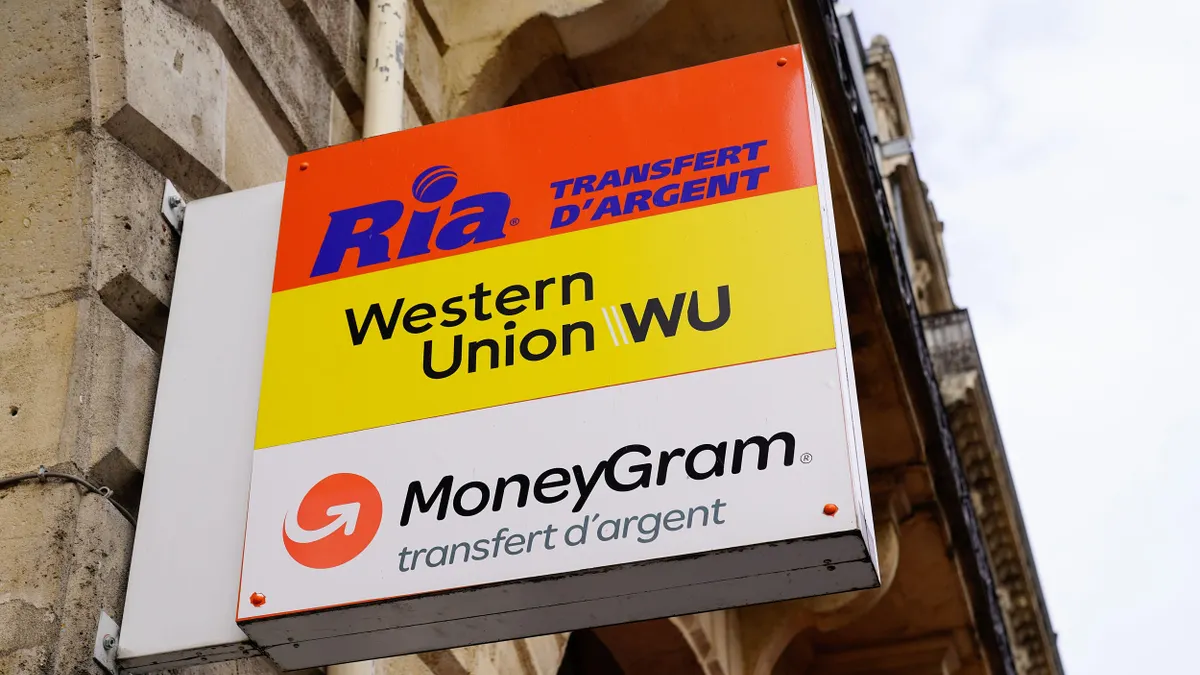McLean, Virgina-based Capital One’s proposed acquisition of Discover carries a $1.38 billion termination fee if the board of directors on either side has a change of heart, according to Securities and Exchange Commission filings from both companies Thursday.
Riverwoods, Illinois-based Discover would also pay the fee if it chooses another buyer, according to the agreement. With that said, the card network can entertain other offers but can’t actively solicit them.
The fee wouldn’t apply, however, if regulators reject the deal.
At 3.9% of the deal’s $35.3 billion value, the $1.38 billion fee is in line with similar back-out penalties, though likely “at the upper end” of the scale, Chip MacDonald, a financial services attorney, told American Banker.
BB&T and SunTrust agreed to a breakup fee of roughly 4% if their 2019 merger to form Truist had fallen apart, the publication reported.
TD last year paid First Horizon $225 million after the Canadian lender’s agreement to purchase the Memphis, Tennessee-based bank was terminated. That accounted for 1.7% of the deal’s $13.4 billion value. But TD ended up paying more than double that in total: It took a $126 million loss in June when the First Horizon preferred stock it bought as part of the transaction converted into common shares. And TD recognized $147 million in losses in April 2023 in a valuation adjustment.
The TD-First Horizon deal ended over “uncertainty” as to when regulators would sign off on the tie-up, the banks said at the time. But TD’s handling of suspicious customer transactions made the Office of the Comptroller of the Currency and the Federal Reserve reluctant to give their blessing, The Wall Street Journal reported last May. The Justice Department, too, opened an investigation into the Canadian bank’s anti-money laundering practices — TD said in August it is cooperating.
But reports emerged last month that TD executives knew as early as November 2022 — six months before the First Horizon deal’s termination — that multiple U.S. agencies had found AML deficiencies serious enough to put the deal at risk of rejection.
Lawmakers pounced on the Capital One-Discover deal as soon as Tuesday. In a post on the social media site X, formerly known as Twitter, Sen. Elizabeth Warren, D-MA, called the tie-up “dangerous,” adding it “threatens our financial stability, reduces competition, and would increase fees and credit costs for American families.”
Rep. Maxine Waters, D-CA, meanwhile, said Wednesday she is “deeply opposed” to the deal, which she noted “would result in a $625 billion bank, which is larger than the combined size of the three banks that failed last year.”
“While we are fighting to ensure that our nation’s biggest banks have adequate capital to prevent bank runs and financial calamities, this merger represents yet another struggle to rein in the economic power of the megabanks, and ensure that our financial system is designed to serve consumers, small businesses and communities across America, not Wall Street,” Waters said in a statement Wednesday.
At least one Republican senator — Josh Hawley of Missouri — has spoken out against the proposed acquisition, calling it “destructive corporate consolidation at its starkest.”
“You, in partnership with other regulators, must take the lead in blocking this merger,” Hawley wrote Wednesday in a letter to Jonathan Kanter, the assistant attorney general in the Justice Department’s antitrust division.
If persuaded, it wouldn’t mark the first time the DOJ has taken action against a proposed multi-billion-dollar tie-up in the credit card space. The agency in November 2020 filed a civil antitrust lawsuit to stop Visa’s $5.3 billion acquisition of data aggregator Plaid. The companies terminated that agreement two months later.
On a call announcing the deal Tuesday, Capital One CEO Richard Fairbank said the company “[believes] that we are well-positioned for approval.”
Sanjay Sakhrani, an analyst at Keefe, Bruyette & Woods, said Capital One “generally tends to be conservative on these matters and wouldn't have announced a deal without having some comfort on a potential path to regulatory approval,” according to a note to clients seen by American Banker.
Other analysts seemed a little less convinced of the tie-up’s future.
“Our sense is that this potential deal could ultimately secure regulatory approval, but it would face gale-force headwinds from a Washington that is deeply skeptical of consolidation, anxious regarding consumer-facing issues in an election year, and reticent regarding shifts in the payments ecosystem,” wrote Isaac Boltansky, a policy analyst at BTIG in a note also seen by American Banker.






















